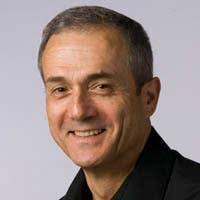Aging, Author Interviews, Circadian Rhythm / 21.03.2019
Where Did the Day Go? Why Time Flies As We Age
MedicalResearch.com Interview with:
Adrian Bejan PhD ( MIT 1971, 1972, 1975 )
J.A. Jones Distinguished Professor
Duke University
MedicalResearch.com: What is the background for this study? What are the main findings?
Response: Among the most common human perceptions is that time passes faster as an individual becomes older. The days become shorter, and so do the years. We all have stories of this kind, from the long days of childhood and the never-ending class hours in elementary school, to days, months and years that now pass in a blur.
Why does it feel that the time passes faster as we get older? What is the physical basis for the impression that some days are slower than others? Why do we tend to focus on the unusual (the surprise), not on the ever present?
This new article unveils the physics basis for these common observations. The reason is that the measurable ‘clock time’ is not the same as the time perceived by the human mind. The ‘mind time’ is a sequence of images, i.e. reflections of nature that are fed by stimuli from sensory organs.
The rate at which changes in mental images are perceived decreases with age, because of several physical features that change with age: saccades frequency, body size, pathways degradation, etc.
The misalignment between mental-image time and clock time serves to unite the voluminous observations of this phenomenon in the literature with the constructal law of evolution everywhere, as physics.
(more…)

